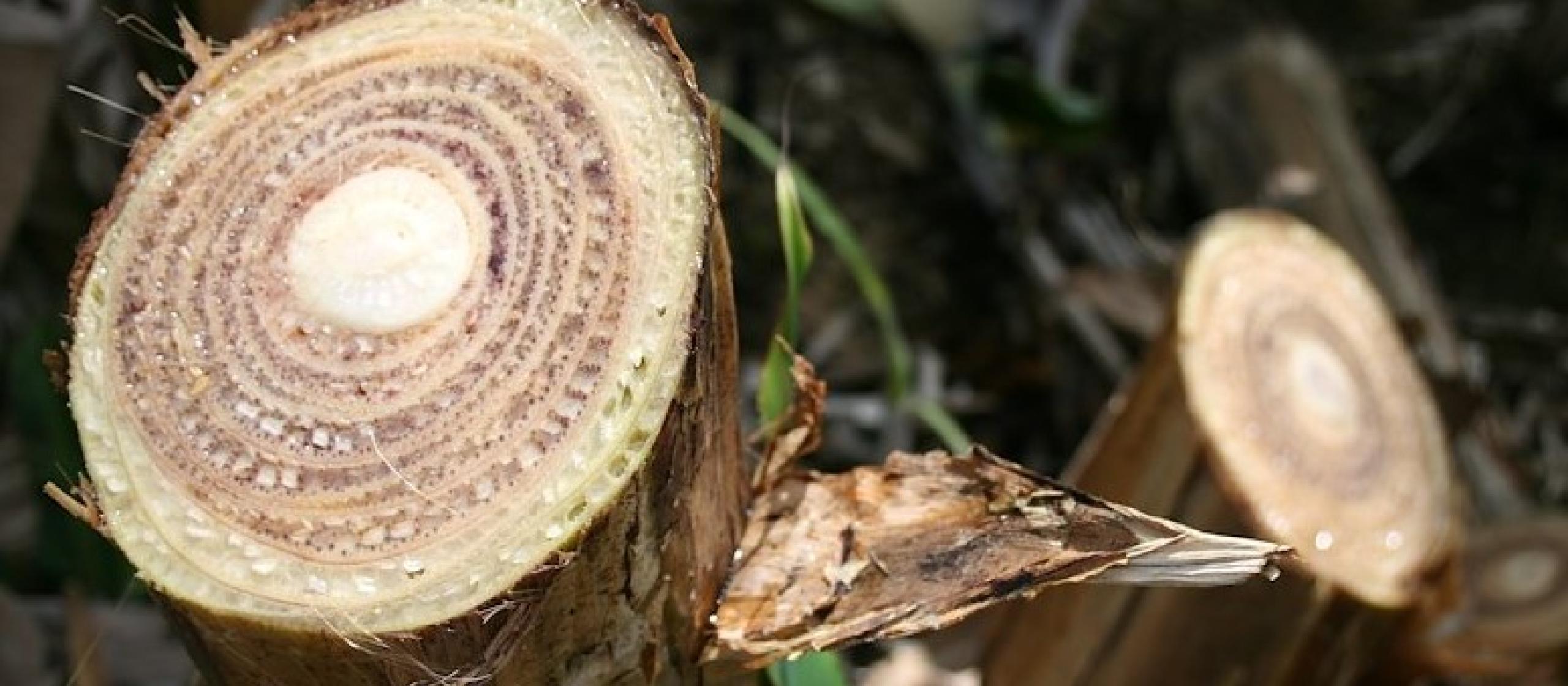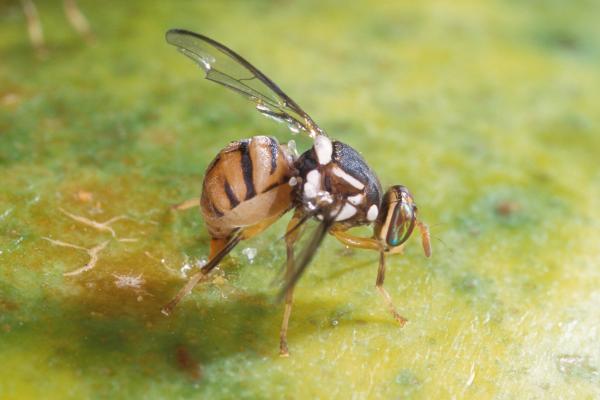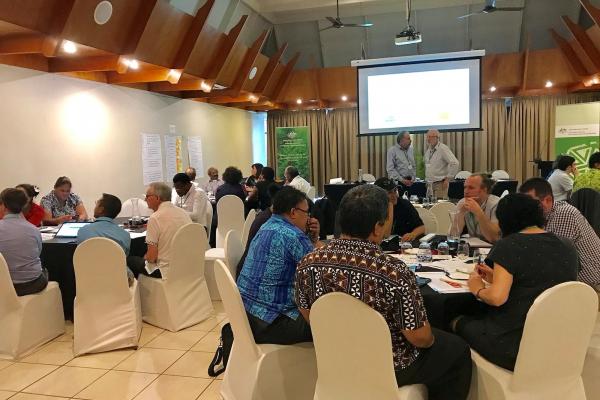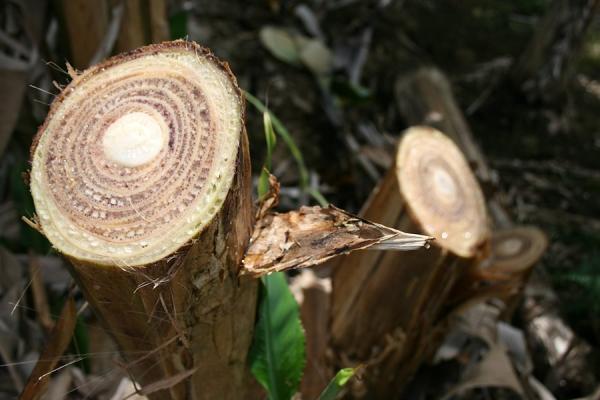- HomeHome
-
About ACIAR
- Our work
- Our people
-
Corporate information
- ACIAR Audit Committee
- Commission for International Agricultural Research
- Policy Advisory Council
- Agency reviews
- Executive remuneration disclosure
- Freedom of information (FOI)
- Gifts and benefits register
- Information publication scheme
- List of new agency files
- Contracts
- Legal services expenditure
- Privacy impact assessment register
- Commonwealth Child Safe Framework
- Benefits to Australia
- Careers
- 40 years of ACIAR
-
What we do
- Programs
- Cross-cutting areas
- Resources
- Where we work
-
Funding
- Research projects
- Fellowships
-
Scholarships
- John Allwright FellowshipScholarships to study in Australia for ACIAR partner country scientists to have Australian postgraduate qualifications
- ACIAR Pacific Agriculture Scholarships and Support and Climate Resilience Program
- Alumni Research Support Facility
- Publications
- News and Outreach
Date released
21 February 2019
Developing biosecurity capacity is a vital part of protecting the agricultural economies of Australia and developing countries. Following the success of the Australia–Africa Plant Biosecurity Partnership, ACIAR is developing new biosecurity capacity building partnerships in Pacific island countries.
According to the Centre for Agriculture and Biosciences International (CABI), millions of the world’s most vulnerable people face problems with invasive weeds, insects and plant diseases, which have a major impact on global prosperity, communities and the environment. Developing countries are disproportionately affected. The global cost of the world’s 1.2 million invasive species is estimated at $1.4 trillion per year—close to 5% of global gross domestic product.
The Australia–Africa Plant Biosecurity Partnership was conceived and funded by ACIAR to build African biosecurity capacity, and ran from 2014 to 2017. Following a year of consultation across Africa, poor biosecurity control capacity was identified as a significant obstacle to trade in agricultural products, limiting farmers’ income and food security. ACIAR determined to leverage Australia’s world-class strength, experience and comparative advantage in biosecurity to build and strengthen African capacity to address plant biosecurity problems.
Bill Magee, formerly with the Australian Quarantine and Inspection Service, was the project leader (Australia) on the ACIAR-funded Australia–Africa Plant Biosecurity consortium, which also comprised the Plant Biosecurity Cooperative Research Centre, the Crawford Fund and CABI. The brief was ‘to develop a series of training programs for mid-level regulatory officials and private sector specialists working in biosecurity in southern and eastern Africa—leading to a regional network of specialists to promote biosecurity in the region’.
The training program was designed to improve food security and prosperity in the region by improving crop production and opening up export markets. It comprised five main elements: a specific placement in supporting Australian institutions; communication and advocacy training; a market access simulation; the establishment of ongoing mentoring relationships; and creation of the Africa Plant Biosecurity network. Forty-five people trained in the inaugural program: 15 fellows who were matched with institutions in Australia to research a particular problem they had nominated for their country, and a further 30 associate fellows who received training in Africa.
Dr Roger Day from CABI was the project leader (Africa). He coordinated training workshops in Africa and managed the crucial relationships with the national plant protection organisations involved in the program. Fruit flies, seed-borne disease and diseases of African staples such as maize and bananas were among the focus problems fellows chose. Others looked at issues such as drafting biosecurity regulation and the phytosanitary implications of gaining market access for particular crops.
Magee says the African program informed their thinking about the Pacific program. ‘There was lots of training on communication, advocacy and representation run by the Crawford Fund and Econnect’, including a week-long course in Perth. ‘People working in plant quarantine are generally biologists. Advocacy, or going to a politician and saying, “We need to get market access” doesn’t come naturally [to them], so they tend to get left out of trade negotiations. An African nation may be having negotiations with the European Union (EU), for example, and they will have trade people there, but no-one from plant biosecurity. “They’re scientists, what will they bring?” But the EU is worried about fruit flies, and the plant biosecurity people are actually the ones who might be able to satisfy the EU that there’s a way of managing fruit flies, and then they’ll set up a trade protocol,’ Magee says. The course also gave participants practice in media interviews, fielding real journalists’ questions, as well as developing their written communication skills so that they could ‘take a technical issue and package it in a way that is accessible for trade officials’.
The other valuable innovation was a one-week simulation exercise, run by an Australian company, BSASP Pty Ltd, where participants role-played gaining access into a new market. ‘The course has been run in Pakistan and in other countries,’ Magee says, ‘and there has been great feedback from participants. We put people into groups, representing different countries, and they have to prepare a dossier about why a country should take their tomatoes, for example. Other groups have to prepare a dossier for a different product, say dried tomato seeds.’ Groups need to identify the science around what diseases and pests are in these products, but it’s also about negotiation. ‘It’s what I did for a job, and it replicates it exactly.’
The legacy of the Australia–Africa Plant Biosecurity Partnership is a growing network of biosecurity people in Africa, with representatives from 10 African nations: Burundi, Ethiopia, Kenya, Malawi, Mozambique, Rwanda, Tanzania, Uganda, Zambia and Zimbabwe. To foster the network’s growth and maintain the partnership’s momentum, ACIAR is funding a coordinator based in Zambia, Dr Getachew Belay from the Common Market for Eastern and Southern Africa (COMESA). That organisation is described as a ‘regional economic community’, but there is a growing recognition that successful trade relies on effective biosecurity. The ACIAR funding is for 12 months, after which COMESA will take over the funding.
Belay is a biotechnologist who had considerable cereal research experience at the Ethiopian Institute of Agricultural Research before joining COMESA in 2010. ‘The whole idea,’ he says ‘is how to sustain what was achieved with the program, and continue network activities in the future. The network has been actively participating in fall armyworm control initiatives, such as the one by the African Union Commission and the Food and Agriculture Organization, through knowledge and information sharing, and development of joint pest risk analysis and mitigation measures. To keep the network active, there are also plans to support biosecurity activities by individual members in their home countries, through funding a competitive proposal submission process.
COMESA also has an annual regional meeting, with the next one scheduled for 19 March 2019. This is an opportunity, Belay says, for the network to make recommendations through a technical working group, channelling their expertise back into the system. ‘We’ll also have to look for other potential sources of funding,’ he explains, ‘to incentivise biosecurity network members to be actively engaged—resourcing is an ongoing issue.’ After COMESA takes over funding, he hopes that support will still come from Australia, especially for short-term training, scholarships and specific African biosecurity programs.
The feedback from Africa is that extraordinary changes are already being recorded. The majority of fellows have already applied their new knowledge, increased collaboration with other organisations within and external to their own country, and 89% of senior fellows had secured additional resources to apply the knowledge and skills gained. Further, 55% of senior fellows had already been given new responsibilities or been promoted.
Following this success, the focus will shift to the Pacific in 2019 and 2020, where a program will be run initially in eight Pacific island countries: Fiji, Kiribati, Papua New Guinea, Samoa, Solomon Islands, Tonga, Tuvalu and Vanuatu.
Building on the lessons learned from the African biosecurity program, work is well underway in the Pacific region. At a workshop held in June 2017, participants agreed that a biosecurity capacity building program for the Pacific region was vital to meet the challenges of major new threats, such as the giant African snail, the coconut rhino beetle and coffee berry borer, as well as maintaining biosecurity levels for existing commodity exports.
Magee says that ACIAR will work closely with New Zealand on this program. ‘They have traditionally been active and successful in Pacific capacity building, so we’ve been talking to NZ biosecurity authorities about partnering—the NZ Ministry of Primary Industries, Foreign Affairs and Trade, and Plant and Food Research. They would host some of the Pacific islander fellows in their institutions, for example. New Zealand runs a very good biosecurity system—it’s very efficient and very innovative.’
ACIAR is commissioning Kalang Consulting, Pacific biosecurity specialists, to work on the program. The next milestone will be the nomination of potential candidates by the various countries, and the selection of fellows. It is anticipated that the fellows will attend institutions in Australia and New Zealand for their five-week placements in April–May 2019. Later in 2019, Magee says, similar to the African program, there will be training for associate fellows in their home countries.






